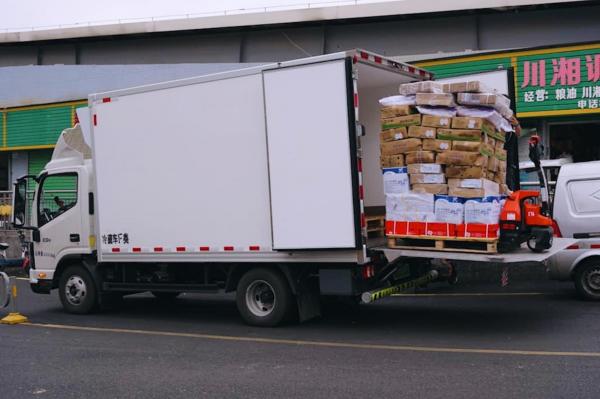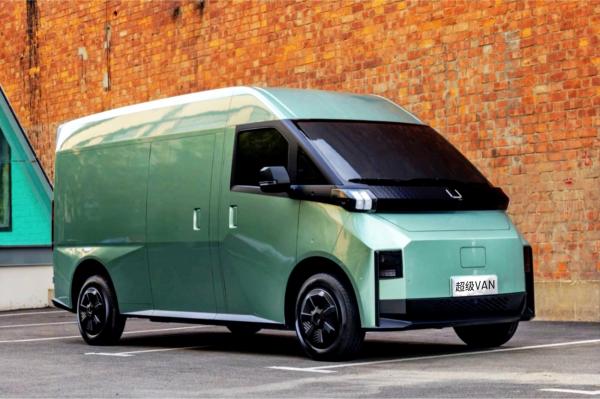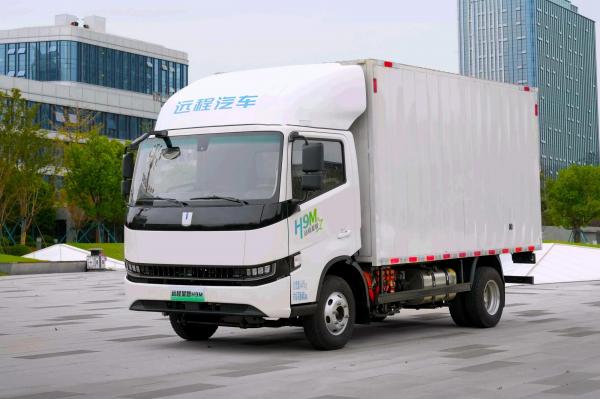New Energy Logistics Vehicles: Truck Series vs. VAN Series – Who Will Reign Supreme?
![]() 11/28 2025
11/28 2025
![]() 465
465
As discussions about "new energy VAN series sales surpassing light trucks" echo through the streets, clashing with the industry's subdued buzz around "truck series shifting from oil to electric," the urban distribution logistics landscape in 2025 is witnessing a clash of titans. Unlike the "truck series dominance" seen during the fuel era, the new energy track has seen the VAN series carve out its niche with "small yet agile" flexibility, while the truck series maintains its stronghold with "large yet stable" intercity advantages. So, which is the ultimate solution for urban freight: truck series or VAN series?

In megacities like Beijing, Shanghai, Guangzhou, and Shenzhen, the VAN series has emerged as the "go-to" for urban distribution. Its lightweight design, low energy consumption, and ability to maneuver through underground garages make it perfectly suited for the "small batch, high frequency" delivery demands of e-commerce. With a 300-kilometer range covering daily delivery routes, energy costs that are 72% lower than those of fuel-powered light trucks, and, most crucially, "road privileges" such as no restrictions within city rings and access to elevated roads, these hidden advantages enable VAN series drivers to handle significantly more orders per day compared to their light truck counterparts. Meanwhile, the truck series, hampered by compliant load limits and road restrictions, appears "overqualified" for such tasks.

Does this mean the truck series is destined to take a backseat? Not necessarily. In intercity transportation scenarios, the 3.5T-8T load capacity of the truck series remains an unbeatable advantage for the VAN series: for transporting bulk goods like construction materials and home appliances, the light truck's "high load capacity + low cost" combination is irreplaceable. Traditional truck markets in regions like Henan and Hebei are undergoing an "oil-to-electric" transition. Although new energy light trucks face challenges such as high battery costs and inadequate charging infrastructure, their "stability" and "cost advantages" in intercity transport continue to attract a large number of B-end clients.

Currently, however, it appears that many automakers have already made their choices. Foton has unveiled the Jingjing i-series, Dongfeng has launched the V-platform Ruilida, and new entrants like Wuling, Karry, and Farizon are flocking to the VAN series market. Unlike traditional "oil-to-electric" conversions, the VAN series is expanding from mere "vehicles" to a comprehensive ecosystem chain encompassing "cargo + finance + transportation capacity." For instance, the Farizon Super VAN and JAC Van Baolu not only offer flexible, customizable spaces but also collaborate with platforms like Huolala for "vehicle-cargo matching," even enjoying policy perks such as trade-in subsidies and non-commercial insurance.

In reality, Commercial Vehicle Commune believes this is not a zero-sum game but rather a complementary division of niche markets. In the short term, the VAN series' dominance in urban distribution "micro-cycles" is unassailable, especially amid e-commerce standardization and intelligent upgrades, where its "small, fast, and agile" characteristics will be even more prized. In the long term, with the proliferation of telematics and digital systems, the truck and VAN series may transition from "competition" to "complementarity": truck series focusing on intercity "arterial" transport, while VAN series delve into urban "capillary" distribution, forming a "macro-cycle + micro-cycle" logistics ecosystem.

Editor's Note
Undeniably, in the current trillion-yuan urban distribution market, the new energy transition has given the VAN series a head start. However, Commercial Vehicle Commune believes the future rivalry between truck and VAN series will not produce absolute winners or losers but will ultimately settle into a complementary, symbiotic relationship. As VAN series evolve from "minivans" to "intelligent logistics terminals" and truck series transform from "fuel trucks" to "new energy intercity pioneers," this "battle for supremacy" will not yield winners or losers but a more efficient logistics future. So, what do you think the outcome of this "truck-VAN war" will be? Share your thoughts in the comments.








